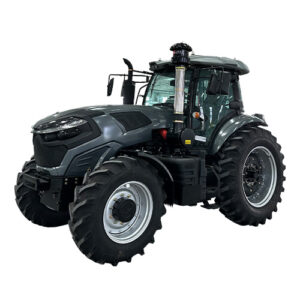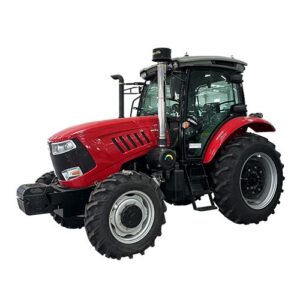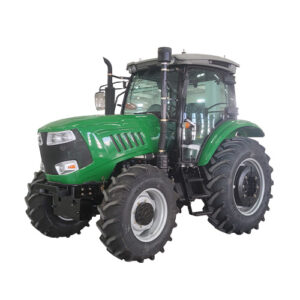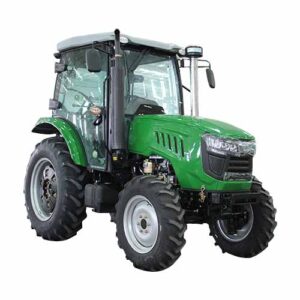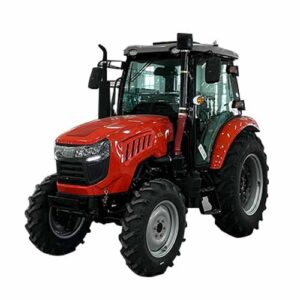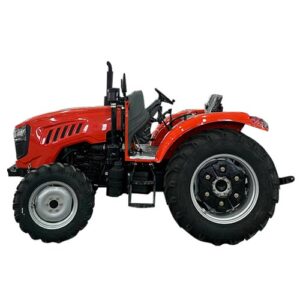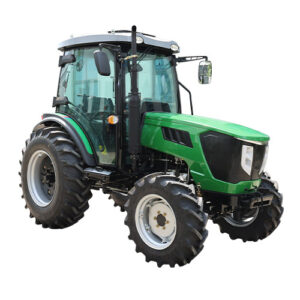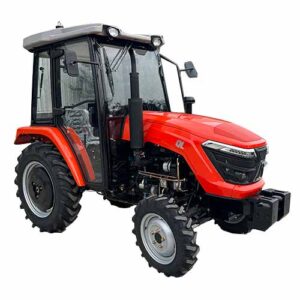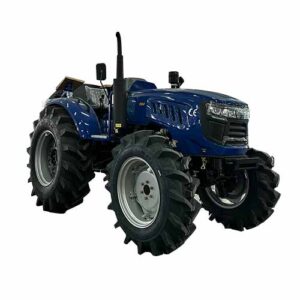Introduction
The evolution of farming technology has led to the development of various types of tractors, each designed to meet specific agricultural needs. Understanding the different types of tractors for farming is crucial for optimizing productivity and efficiency on the farm. This comprehensive guide will delve into the various types of tractors available, their unique features, and their specific applications in farming.
The Importance of Tractors in Modern Farming
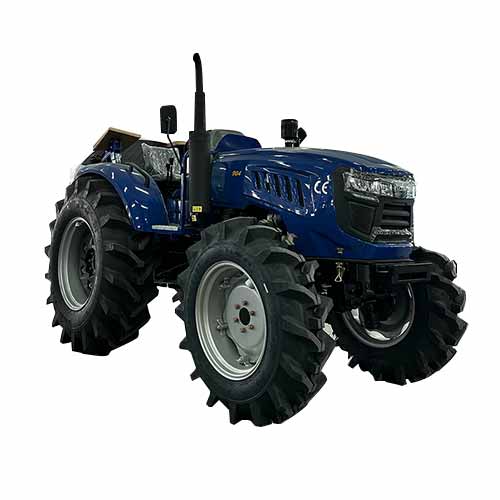
Enhancing Productivity
Tractors have revolutionized farming by significantly enhancing productivity. Their ability to perform multiple tasks with various attachments allows farmers to manage large areas of land more efficiently.
- Time-Saving: Tractors reduce the time required for various farming tasks.
- Labor Reduction: They minimize the need for manual labor, allowing farmers to focus on other important aspects of farm management.
Polyvalence et adaptabilité
The versatility of tractors is one of their most significant advantages. They can be equipped with different attachments to perform a wide range of tasks, from soil preparation to harvesting.
- Multiple Attachments: Tractors can be fitted with plows, seeders, sprayers, and harvesters.
- Year-Round Utility: Useful for various farming activities throughout the year.
Types of Tractors for Farming
Tracteurs utilitaires
Overview
Utility tractors are versatile and powerful machines designed for a variety of tasks on small to medium-sized farms. They are ideal for tasks such as plowing, tilling, and hauling.
- Power Range: Typically between 40-100 horsepower.
- Attachments: Compatible with a wide range of attachments.
Applications
- Préparation du sol : Plowing, tilling, and harrowing.
- Manipulation du matériel: Hauling trailers and transporting materials.
- General Maintenance: Mowing and light construction tasks.
Tracteurs pour cultures en rangées
Overview
Row crop tractors are specifically designed for tasks involving row crops such as corn, soybeans, and cotton. They have high clearance and are equipped with features that protect crops during operations.
- Power Range: Typically between 80-200 horsepower.
- Attachments: Compatible with planters, cultivators, and sprayers.
Applications
- Planting and Seeding: Precise planting of row crops.
- Cultivation: Managing weeds and soil between crop rows.
- Spraying: Applying fertilizers and pesticides.
Tracteurs compacts
Overview
Compact tractors are smaller, lightweight tractors designed for small farms, orchards, and vineyards. They are highly maneuverable and suitable for tight spaces.
- Power Range: Typically between 20-60 horsepower.
- Attachments: Compatible with mowers, loaders, and backhoes.
Applications
- Aménagement paysager: Mowing, tilling, and gardening.
- Manipulation du matériel: Light hauling and loading.
- Vineyard and Orchard Maintenance: Cultivating and maintaining crops in tight spaces.
Orchard Tractors
Overview
Orchard tractors are designed for use in orchards and vineyards. They have a low profile and narrow design to navigate between rows of trees and vines without damaging the crops.
- Power Range: Typically between 40-100 horsepower.
- Attachments: Compatible with pruners, sprayers, and harvesters.
Applications
- Pruning and Spraying: Maintaining trees and vines.
- Harvesting: Collecting fruits and vegetables.
- Contrôle de cannabis: Managing weeds between rows.
Garden Tractors
Overview
Garden tractors are small, lightweight tractors designed for residential use. They are ideal for gardening, lawn care, and light-duty tasks around the home.
- Power Range: Typically between 15-30 horsepower.
- Attachments: Compatible with mowers, tillers, and small trailers.
Applications
- Lawn Care: Mowing and maintaining lawns.
- Gardening: Tilling, planting, and maintaining gardens.
- Light Hauling: Transporting materials around the yard.
Industrial Tractors
Overview
Industrial tractors are designed for heavy-duty tasks on large farms and industrial sites. They are built for durability and power, capable of handling the most demanding tasks.
- Power Range: Typically between 100-600 horsepower.
- Attachments: Compatible with heavy-duty loaders, backhoes, and excavators.
Applications
- Heavy Construction: Excavation, grading, and site preparation.
- Manipulation du matériel: Transporting heavy materials and equipment.
- Large-Scale Farming: Tilling, planting, and harvesting on large farms.
Key Features to Consider When Choosing a Farm Tractor
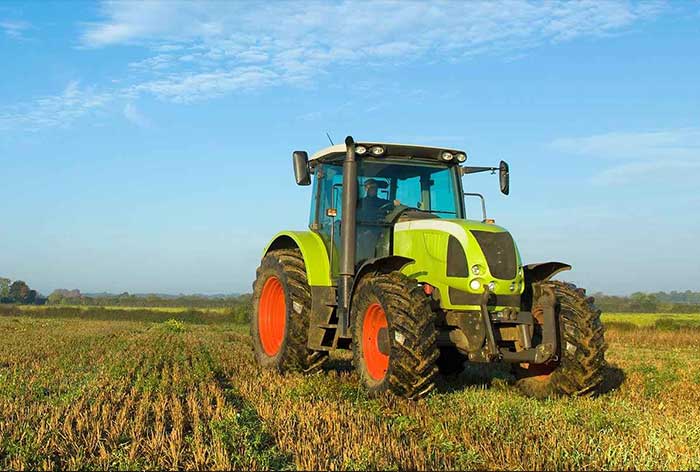
Puissance et performance
The power and performance of a tractor are crucial factors to consider. The horsepower of a tractor determines its ability to handle various tasks and attachments.
- Horsepower: Choose a tractor with sufficient horsepower for your farming needs.
- Engine Type: Consider diesel engines for higher power and efficiency.
Polyvalence et accessoires
The versatility of a tractor is determined by its compatibility with various attachments. Ensure that the tractor can accommodate the attachments required for your specific farming tasks.
- Compatibilité des pièces jointes : Check for compatibility with plows, seeders, sprayers, and harvesters.
- Quick Attach Systems: Look for tractors with quick attach systems for easy attachment changes.
Maneuverability and Size
The size and maneuverability of a tractor are important, especially for farms with tight spaces or uneven terrain. Smaller tractors are easier to maneuver, while larger tractors provide more power.
- Size: Choose a size that fits your farm’s layout and space constraints.
- Turning Radius: Consider tractors with a small turning radius for better maneuverability.
Durability and Maintenance
Durability and ease of maintenance are important factors in the long-term performance of a tractor. Look for tractors built with high-quality materials and designs that facilitate easy maintenance.
- Build Quality: Opt for tractors made with durable materials.
- Maintenance Access: Ensure easy access to engine components for regular maintenance.
Table: Comparison of Different Types of Tractors for Farming
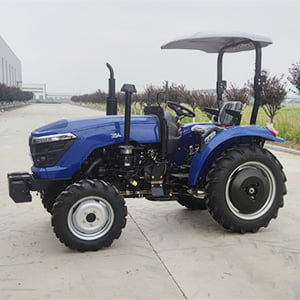
| Type of Tractor | Power Range (HP) | Key Applications | Unique Features |
|---|---|---|---|
| Tracteurs utilitaires | 40-100 | Soil preparation, material handling, general tasks | Versatile, compatible with multiple attachments |
| Tracteurs pour cultures en rangées | 80-200 | Planting, cultivation, spraying | High clearance, protects crops during operations |
| Tracteurs compacts | 20-60 | Landscaping, material handling, maintenance | Maneuverable, suitable for tight spaces |
| Orchard Tractors | 40-100 | Pruning, spraying, harvesting | Low profile, narrow design for orchards and vineyards |
| Garden Tractors | 15-30 | Lawn care, gardening, light hauling | Lightweight, residential use |
| Industrial Tractors | 100-600 | Heavy construction, material handling, large-scale farming | Durable, built for heavy-duty tasks |
Conclusion: Types of Tracteurs for Farming
Understanding the different types of tractors for farming and their specific applications is essential for optimizing farm operations. Each type of tractor offers unique features and benefits that cater to various farming tasks, from soil preparation and planting to cultivation, spraying, and harvesting. By selecting the right tractor for your needs, you can enhance productivity, efficiency, and overall farm management.
FAQ
What are the different types of tractors for farming?
The different types of tractors for farming include utility tractors, row crop tractors, compact tractors, orchard tractors, garden tractors, and industrial tractors. Each type is designed for specific farming tasks and applications, offering unique features and benefits to meet various agricultural needs.
How do the types of tractors for farming vary in their applications?
The types of tractors for farming vary in their applications based on their design and capabilities. Utility tractors are versatile for general tasks, row crop tractors are suited for planting and cultivation, compact tractors excel in small spaces, orchard tractors are ideal for navigating between rows of trees and vines, garden tractors are best for residential tasks, and industrial tractors handle heavy-duty operations on large farms and industrial sites.
Why is it important to choose the right types of tractors for farming?
Choosing the right types of tractors for farming is important to ensure efficiency and productivity on the farm. Different tractors are equipped with specific features and attachments tailored to particular tasks, such as plowing, seeding, cultivating, spraying, and harvesting. Selecting the appropriate tractor type helps optimize farm operations and achieve better results.
Are compact tractors suitable for small farms?
Yes, compact tractors are ideal for small farms, orchards, and vineyards. They are highly maneuverable and suitable for tight spaces, making them perfect for landscaping, material handling, and maintenance tasks.
What are the benefits of using orchard tractors?
Orchard tractors are designed with a low profile and narrow design to navigate between rows of trees and vines without damaging the crops. They are ideal for pruning, spraying, and harvesting in orchards and vineyards.
Can garden tractors be used for farming?
Garden tractors are primarily designed for residential use, including lawn care, gardening, and light-duty tasks around the home. While they are not suitable for large-scale farming, they can be used for small-scale gardening and landscaping tasks.
What makes industrial tractors different from other types of tractors?
Industrial tractors are built for heavy-duty tasks on large farms and industrial sites. They are designed for durability and power, capable of handling demanding tasks such as excavation, grading, and site preparation. They typically have higher horsepower and are compatible with heavy-duty attachments.
How do I determine the right power range for my farm tractor?
The right power range for your farm tractor depends on the size of your farm and the types of tasks you need to perform. Consider the horsepower required for the attachments and tasks you will be using the tractor for, and choose a tractor with sufficient power to handle those tasks efficiently.
What are the advantages of using row crop tractors?
Row crop tractors offer several advantages, including high clearance to protect crops during operations, precision in planting and seeding, and the ability to manage weeds and soil between crop rows. They are designed specifically for tasks involving row crops, making them highly efficient for these applications.


